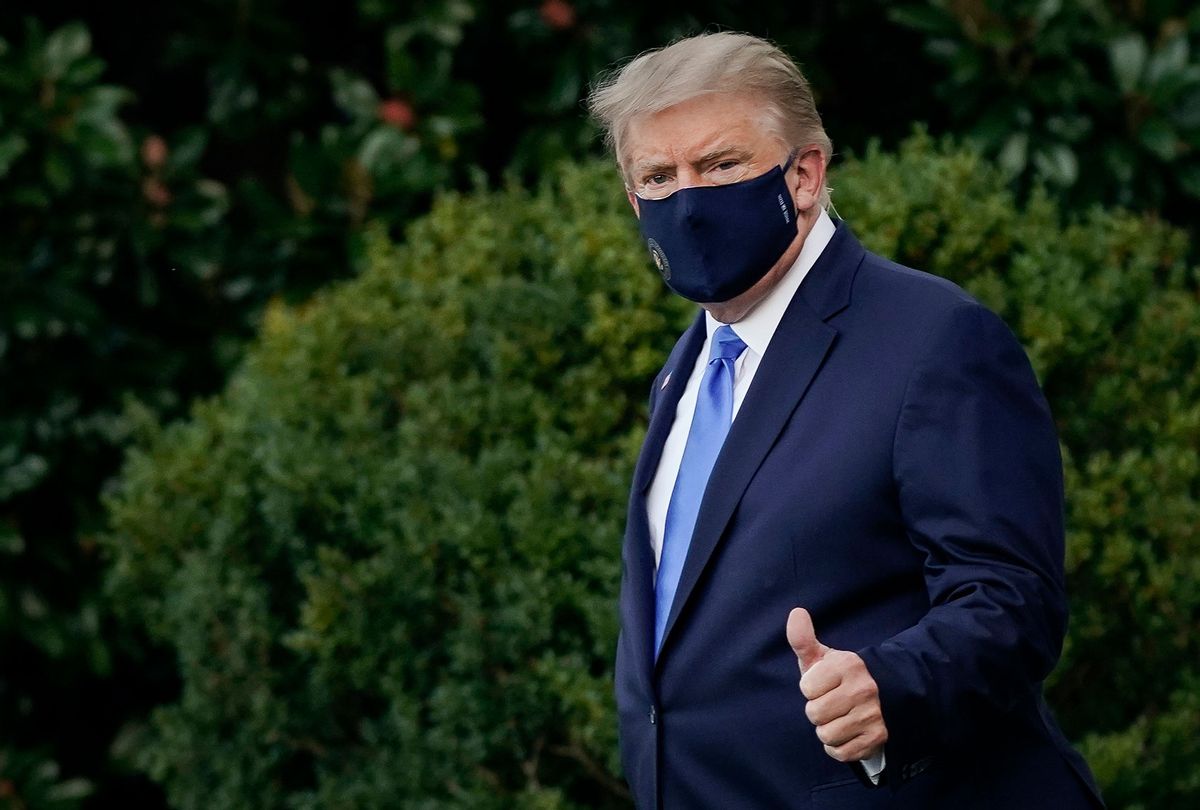The Food and Drug Administration (FDA) announced on Saturday that it is granting an emergency use authorization to the same experimental antibody treatment, REGN-COV2, that was given to President Donald Trump after he was diagnosed with COVID-19 last month.
The antibody treatment, which is manufactured by the biotechnology company Regeneron, combines the drugs casirivimab and imdevimab and is intended "for the treatment of mild to moderate coronavirus disease 2019 (COVID-19)," according to the FDA letter. The two drugs are described as monoclonal antibodies, meaning antibodies manufactured by cloning a unique white blood cell, and "target the receptor binding domain of the spike protein of SARS-CoV-2," the virus that causes COVID-19.
REGN-COV2 is similar to a treatment developed by the pharmaceutical company Eli Lilly that was given emergency use authorization earlier this month, according to The New York Times. Regeneron's drug cocktail will only be allowed for people over 12, have tested positive for SARS-CoV-2 and are at a high risk for developing severe COVID-19. The company only expects to have about 80,000 doses of REGN-COV2 available by the end of November, 200,000 by the first week of January and 300,000 by the final week of January.
It is worth noting that an emergency use authorization is not the same thing as full FDA approval. As Dr. Deborah Doroshow, an assistant professor of medicine at the Icahn School of Medicine at Mount Sinai, explained to Salon last week regarding the FDA's emergency use authorization of a COVID-19 home testing kit, Emergency Use Authorization does not imply the product is "safe" nor "effective. "Simply, an EUA signifies that there is a serious or life threatening condition for which no approved or adequate alternative exists (in this case, a home testing kit) and that there is reason to believe the product may be effective and that the risks of using it most likely outweigh the benefits," Doroshow said.
When Trump was diagnosed with COVID-19 last month, he received a bespoke drug regimen that included the steroid dexamethasone to address his lowered oxygen levels; a five-day course of an antiviral drug called remdesivir that is meant to improve recovery time for patients; and an 8 gram dose of an experimental drug called REGN-COV2 from the biotechnology company Regeneron. At the time Regeneron CEO Dr. Leonard Schleifer explained the company's decision to allow Trump to access their drug by arguing that "giving it to [Trump] or to others who might not be able or don't qualify for clinical trials is the right use of compassionate use. That's for small numbers of people, for these exceptions. We want everybody to be potentially able to benefit. We understand we don't make that decision. This is a decision the FDA has to make."
Other COVID-19 related drugs have been granted emergency use authorizations recently. In addition to the FDA granting this to Eli Lilly for bamlanivimab, another monoclonal antibody drug, Pfizer and BioNTech submitted an application for an emergency use authorization last week to the FDA for their COVID-19 vaccine candidate. Pfizer Chairman and CEO Dr. Albert Bourla told NPR's All Things Considered on Thursday that once the vaccine is authorized by the FDA for emergency use, "we will be ready to start distributing our vaccine within hours." In a joint statement on Friday, Bourla explained that the filing was "a critical milestone in our journey to deliver a COVID-19 vaccine to the world and we now have a more complete picture of both the efficacy and safety profile of our vaccine, giving us confidence in its potential."



Shares